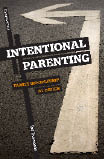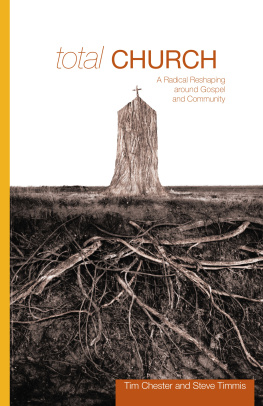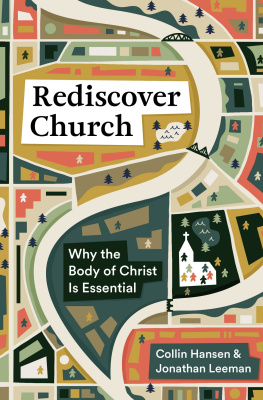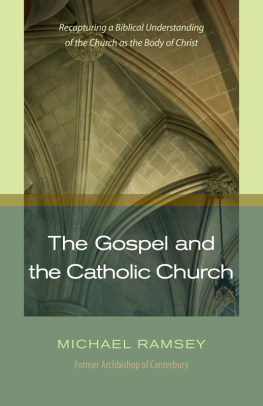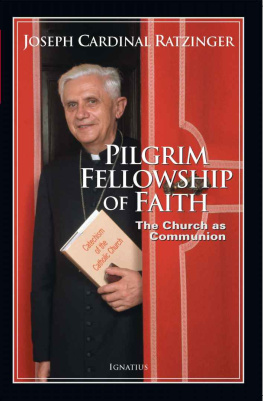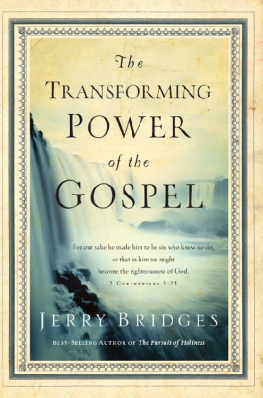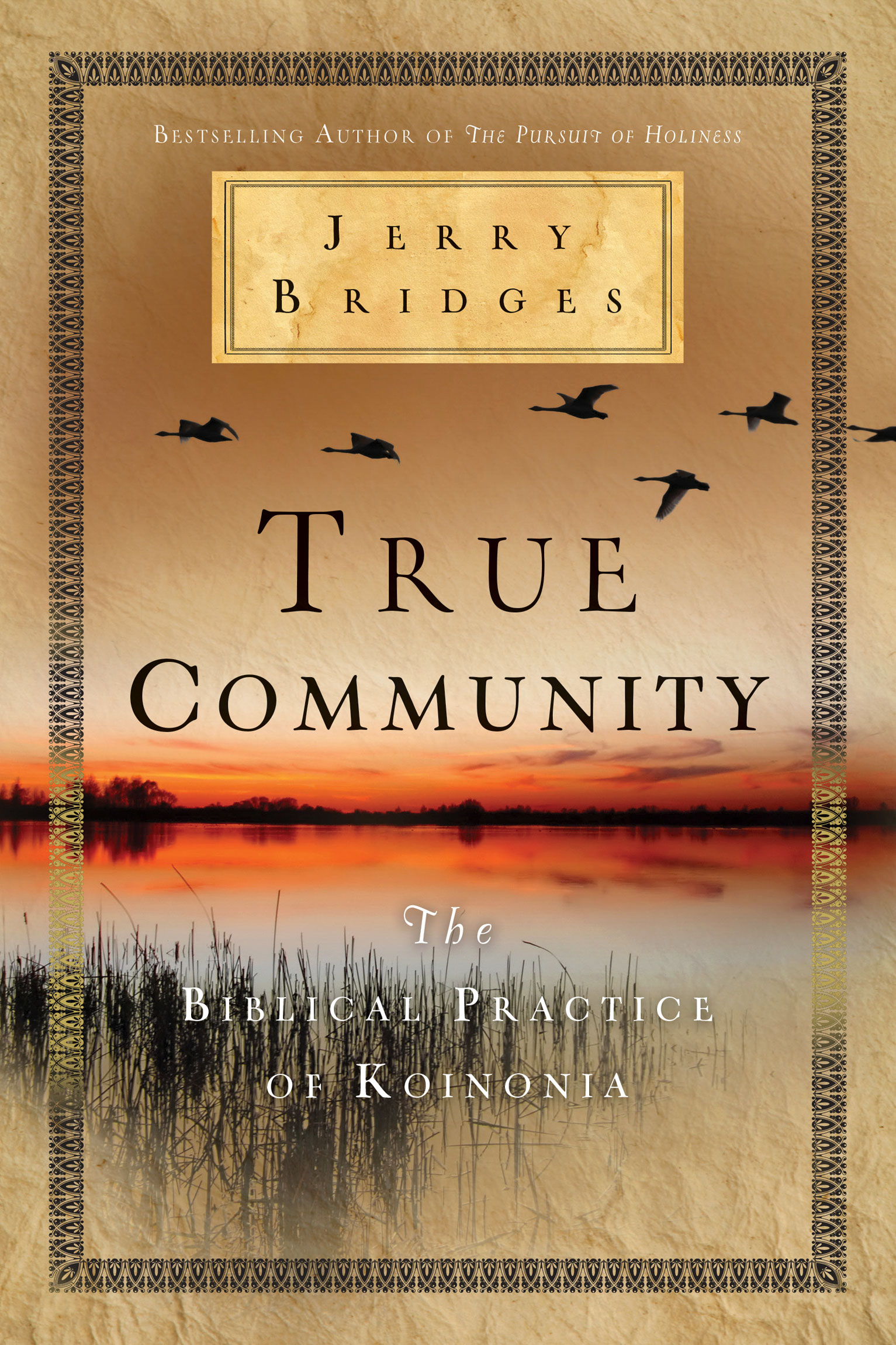With God-honoring and Scripture-reassuring precision, Jerry Bridges escorts the reader into a rich, applicable, and convincing encounter with truths often ignored. I am exceedingly thankful for Mr. Bridges healing and helpful exposition.
REV. JOSEPH V. NOVENSON, senior teaching pastor,
Lookout Mountain Presbyterian Church,
Lookout Mountain, Tennessee
The Holy Spirit has given Jerry Bridges a gift of being able to explain and apply biblical truth with unusual clarity and simplicity. Pastors, deacons, and small-group leaders especially will benefit from reading this book, finding specific help in leading their churches into Christ-reflecting, gospel-fueled community. The discussion questions at the end of each chapter add particular value for those using this book in a group setting.
LARRY E. MCCALL, DMin, pastor,
Christs Covenant Church, Winona Lake, Indiana;
author of Loving Your Wife as Christ Loves the Church
As a pastor of a small but growing church, I am so grateful for this book. Spiritual fellowship, as described and prescribed by Jerry Bridges, takes people who are spectators at church and turns them into life-giving participants in the body of Christ. True Community will make its way into every new members orientation packet in our congregation!
DR. JOHN YENCHKO, pastor,
North Shore Community Church, Oyster Bay, New York
NavPress is the publishing ministry of The Navigators, an international Christian organization and leader in personal spiritual development. NavPress is committed to helping people grow spiritually and enjoy lives of meaning and hope through personal and group resources that are biblically rooted, culturally relevant, and highly practical.
For more information, visit www.NavPress.com.
2012 by Jerry Bridges
All rights reserved. No part of this publication may be reproduced in any form without written permission from NavPress, P.O. Box 35001, Colorado Springs, CO 80935. www.navpress.com
NAVPRESS and the NAVPRESS logo are registered trademarks of NavPress. Absence of in connection with marks of NavPress or other parties does not indicate an absence of registration of those marks.
ISBN-13: 978-1-61747-175-9
Originally published as True Fellowship and Crisis of Caring
Cover design by Arvid Wallen
Cover photo by Jaroslaw Grudzinski/Shutterstock
Some of the anecdotal illustrations in this book are true to life and are included with the permission of the persons involved. All other illustrations are composites of real situations, and any resemblance to people living or dead is coincidental.
Unless otherwise identified, all Scripture quotations in this publication are taken from the Holy Bible, New International Version ( NIV ). Copyright 1973, 1978, 1984 by Biblica, used by permission of Zondervan. All rights reserved. Other versions used include: the New American Standard Bible ( NASB ), Copyright 1960, 1962, 1963, 1968, 1971, 1972, 1973, 1975, 1977, 1995 by The Lockman Foundation. Used by permission; and The New English Bible ( NEB ), 1961, 1970, The Delegates of the Oxford University Press and The Syndics of the Cambridge University Press.
Bridges, Jerry.
True community : the biblical practice of koinonia / Jerry Bridges.
p. cm.
Rev. ed. of: True fellowship.
Includes bibliographical references (p. ).
ISBN 978-1-61747-175-9
1. Fellowship Religious aspects Christianity. I. Bridges, Jerry. True fellowship. II. Title.
BV4517.5.B75 2012
262 dc23
2012001985
Build: 2021-04-21 22:37:25 EPUB 3.0
Preface
A lmost thirty years ago, I did a word study of the Greek word koinnia, as it occurs in various grammatical forms in the New Testament. Though it is translated into several English words and has a rich and varied meaning, koinnia is most often understood as meaning fellowship. But in the mid-1980s, fellowship had come to mean little more than various forms of Christian social activity.
I was so impressed with the wide divergence between our concept of fellowship and the biblical meaning of it that I felt constrained to write a book on the subject, which was titled True Fellowship, to explain what koinonia, as it is referred to in the New Testament, is all about.
Later, in an effort to attract greater readership, the book was retitled The Crisis of Caring in order to relate the message of the book to the all-too-often superficial friendliness and empty relationships characteristic of our Christian community at the time. The book was available under that title for a number of years.
More recently, there has been an increasing interest in the subject of Christian community, and some felt that my book in many ways spoke to that subject. So my publisher, NavPress, asked that I update and revise the book where needed to show more clearly how the whole concept of New Testament koinonia is necessary to our understanding of biblical community. As I worked on the revision, I was pleasantly surprised at how often I had used not only the word but also the concept of community almost thirty years ago. So there truly is a close relationship between community and fellowship, provided we give a biblical meaning to both words.
I am aware that others have written some excellent work on the subject of community, so this book is not intended to say all there is to say on the subject. Rather, I have attempted to show that an understanding and application of biblical koinonia will help all of us practice true community.
The work of revision has been both joyous and challenging. Joyous as I again focused on the rich and varied meaning of koinonia. Challenging because I was confronted by how much growing I still need to do in applying it to my life. So I do not submit this book as one who has mastered its teaching but rather as a fellow pilgrim inviting you to pursue true community with me.
CHAPTER ONE : SHARING A COMMON LIFE
What we have seen and heard we declare to you, so that you and we together may share in a common life, that life which we share with the father and his son Jesus Christ.
1 J OHN 1:3 ( NEB )
T he word community is used for a variety of purposes to denote groups of people who have something in common. For example, we may speak of a farming community or of the academic community at a university or of an ethnic group, such as the Italian community in a large city.
In recent years, many Christian leaders and pastors have begun to emphasize the importance of community among believers. This is a much-needed corrective to our tendency toward an individualistic approach to the Christian life, but it does raise the question What is biblical community? And is there a biblical basis for using the word community in our Christian context?
To answer that question, we need to explore the meaning of the Greek word koinnia and its most common English translation, the word fellowship. Koinnia, in its different grammatical forms, is actually translated several ways in the New Testament: for example, participation, partnership, sharing, and of course fellowship. In our Christian circles, the word fellowship has come to mean little more than Christian social activity. It may mean the exchange of pleasantries over coffee and cookies at church, or the social functions of our high school or campus ministry groups. This is not the meaning of fellowship in the New Testament.



